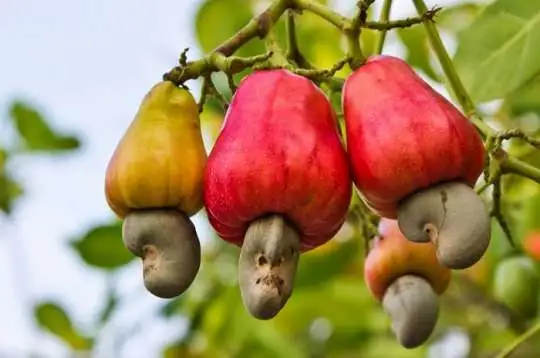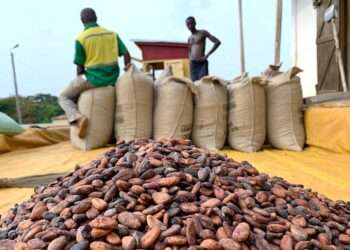The Chief Executive of Tree Crops Development Authority (TCDA), William Agyapong Quaittoo, has disclosed that the government is set to inject $60 million into the cashew sector, with a focus on processing.
This commitment comes as part of a broader initiative to bolster the industry.
According to Quaittoo, the government has greenlit a $100 million loan from the World Bank, earmarking approximately $60 million of this sum for investment within the cashew sector.
The allocation underscores the government’s commitment to fostering growth and sustainability in this vital agricultural domain.
A significant portion of the allocated funds, specifically 70 percent of the $60 million, will be directed towards the establishment of multiple processing facilities in key cashew-producing regions. These regions span eight areas identified as vital hubs for cashew cultivation.
“The government has allowed Tree Crops Development Authority to take a World Bank loan of $100 million, out of which $ 60 million will be invested in cashew. Also, 70 percent of the $60 million will be invested in cashew processing.
“The feasibility study is being done and soon we will see the establishment of various cashew factories in catchment areas such the Bono, Bono-East, Savannah and Oti regions and other places. It spans about eight regions.”
Quaittoo further highlighted that Ghana’s cashew processing rate stands at a mere 10 percent of its total production. To address this gap, the government aims to increase the processing capacity to 50 percent within six years.
Emphasizing the significance of sustained efforts, Quaittoo urged citizens to rally behind this initiative, highlighting the need for continuity irrespective of potential changes in governmental leadership.
Mr Quaittoo was speaking at the 6th Consultative International Cashew Council (CICC) conference held at the Kempinski Hotel in Accra. It was on the theme: “Projecting the cashew sector through local consumption, value addition, and job creation”.

The conference convened a notable assembly of Ministers from Agriculture, Trade, and Industries across 12 African nations united under the CICC.
This gathering also attracted experts and researchers, facilitating discussions aimed at enhancing Africa’s prominence within the global cashew sector.
Key participants hailed from member countries including Ghana, Côte d’Ivoire, Benin, Togo, Nigeria, Cameroon, Senegal, Mali, Guinea, Guinea-Bissau, Burkina Faso, and the newly inducted member, Mozambique.
Africa’s Cashew Market Share and Outlook
Africa stands as the dominant producer of raw cashew nuts (RCN), boasting a remarkable 57% share of global production, as highlighted by experts in “Cashew offers untapped potential for African livelihoods and landscapes.”
Despite this, the continent’s involvement in the higher-value shelled cashew market remains minimal, accounting for only about 6.6% of its total worth.
The discrepancy between Africa’s substantial RCN production and its limited presence in the shelled cashew market can be attributed to the predominant exportation of raw nuts.
Most of Africa’s cashew harvest is shipped abroad, primarily to countries like Vietnam, where processing facilities are more readily available. This reliance on exporting raw nuts significantly limits Africa’s ability to capture more value from its cashew production.
However, there is considerable optimism regarding Africa’s potential to expand its share of the processed cashew market. By focusing on local processing, the continent could unlock greater value and generate more employment opportunities.
This prospect aligns with the objectives outlined by the African Cashew Alliance, emphasizing the transformative impact increased processing capacity could have on African economies.
As highlighted in “Cashew offers untapped potential for African livelihoods and landscapes,” such initiatives hold the key to unlocking greater economic prosperity and sustainable development across the continent.
READ ALSO: Actor Zack Orji Narrates How He Slumped In The Bathroom























